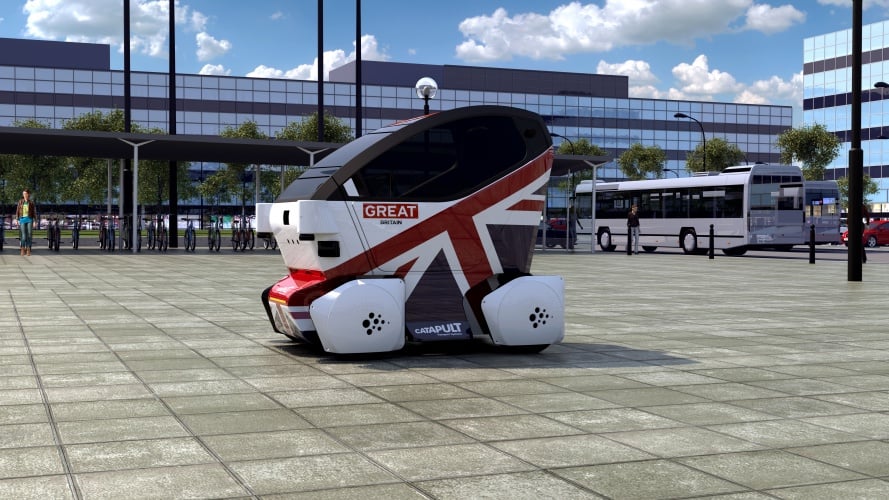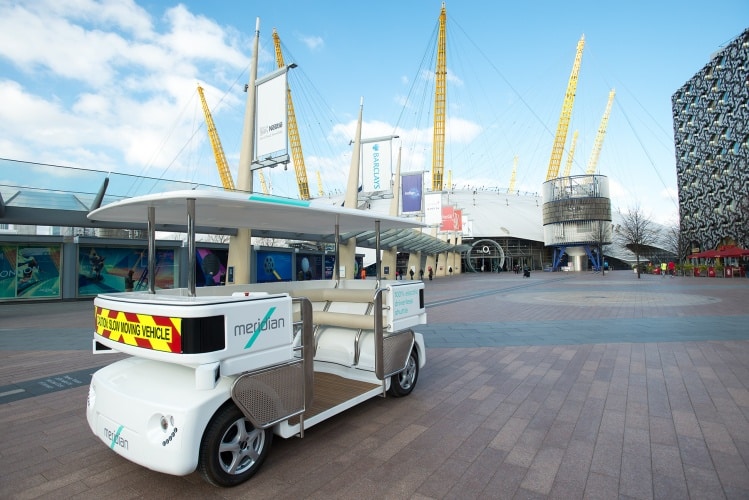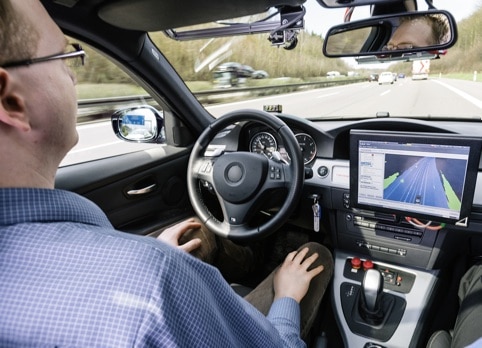Like many of our readers, we’re not averse to a bit of enthusiastic crystal-ball gazing on The Engineer. Indeed, weighing up the potential of today’s emerging technology is a key part of the job.
Sometimes, if we’re lucky, we even get to witness bold visions of the future become reality. Wi-fi, multi-touch sensing, composite aircraft and electric racing cars are just a few of the innovations that we’ve been fortunate enough to see emerge and flourish over the last decade or so.
But whilst some technologies have success written all over them from the moment they’re born, others are a little harder to envisage taking off: the Sinclair C5, Google Glass and numerous ludicrously-backronymed European-funded robotics projects spring to mind.
Could driverless “pod cars” of the type unveiled this morning in London be in danger of falling this latter camp?
The government has been talking up driverless vehicle technology, and its potential to reshape urban public transport, for some time now and has in the last few years invested around £20m in a number of projects aimed at putting the UK at the forefront of this rapidly emerging autonomous vehicle sector.
The vehicles at the heart of two of these initiatives - the LUTZ Pathfinder, and the Meridian Shuttle - were unveiled at a launch event in London earlier today (Wednesday 11th Feb).
Both vehicles are electric, driverless, and designed to operate in a range of environments from busy streets to pedestrianized zones and pavements.

The LUTZ pathfinder - an autonomous electric two-seater developed through a project led by the government’s Transport Systems Catapult - will shortly begin trials in Coventry and Milton Keynes, whilst the Meridian Shuttle - developed through the Transport Research Laboratory - will be trialled over the next two years in the London Borough of Greenwich.
There’s much that is positive about both initiatives. They’re technically challenging, headline grabbing (good for encouraging wider interest in engineering), and, most importantly, will teach us some valuable lessons around the challenges of operating autonomous vehicles in complex, unpredictable urban environments.
The trials should also help inform the critical and problematic legal debate around driverless cars. Who’s actually responsible if you’re injured in a collision? The local authority? The vehicle manufacturer? The engineer who wrote the algorithms? Industry needs to find answers to these questions.

But despite the positives, we should also be wary of some of the more breathless coverage surrounding today’s launches, as well as a growing political obsession with disruptive technology.
We’re perhaps at our most conservative when choosing transport.
The developers of the most popular electric cars know this. There’s no technical reason that EVs should be married to a vehicle architecture that’s evolved largely as a result of the need to accommodate a combustion engine. And yet efforts to deviate from this have been pretty unsuccessful, whilst more conventional looking vehicles like the Nissan Leaf are selling increasingly well.
And this conservatism is arguably even more acute when it comes to public transport, where operators are even more obsessed with safety and far less inclined than individuals to use their vehicles to make a statement.
There are also genuine concerns over how essentially unsupervised public transport assets will fare on the UK’s city streets. When we covered the topic back in 2009 one expert warned that urban pods could become a magnet for criminal and anti-social behavior.
What’s more, we perhaps shouldn’t be seduced by the notion that these projects will lead to hitherto unthought of advances.

The world’s biggest car companies, as well as the likes of Google, have been ploughing money into driverless technology for years now and have made huge progress. BMW, Bosch, and Google have all demonstrated driverless cars in a range of environments (including at high speed on motorways) and thanks to this research stepping stone components of the autonomous car, such as self-parking systems, or lane-keeping technology, are already commercially available on production vehicles.
The projects in the news today will undoubtedly help advance our understanding of how to operate driverless vehicles in a complex urban environment. What they’re unlikely to do is outstrip the progress made in the wider automotive industry, or indeed fundamentally reshape our public transport infrastructure.
Click here to find out more about the techology behind the UK’s new pod cars.




Nanogenerator consumes CO2 to generate electricity
Whoopee, they've solved how to keep a light on but not a lot else.